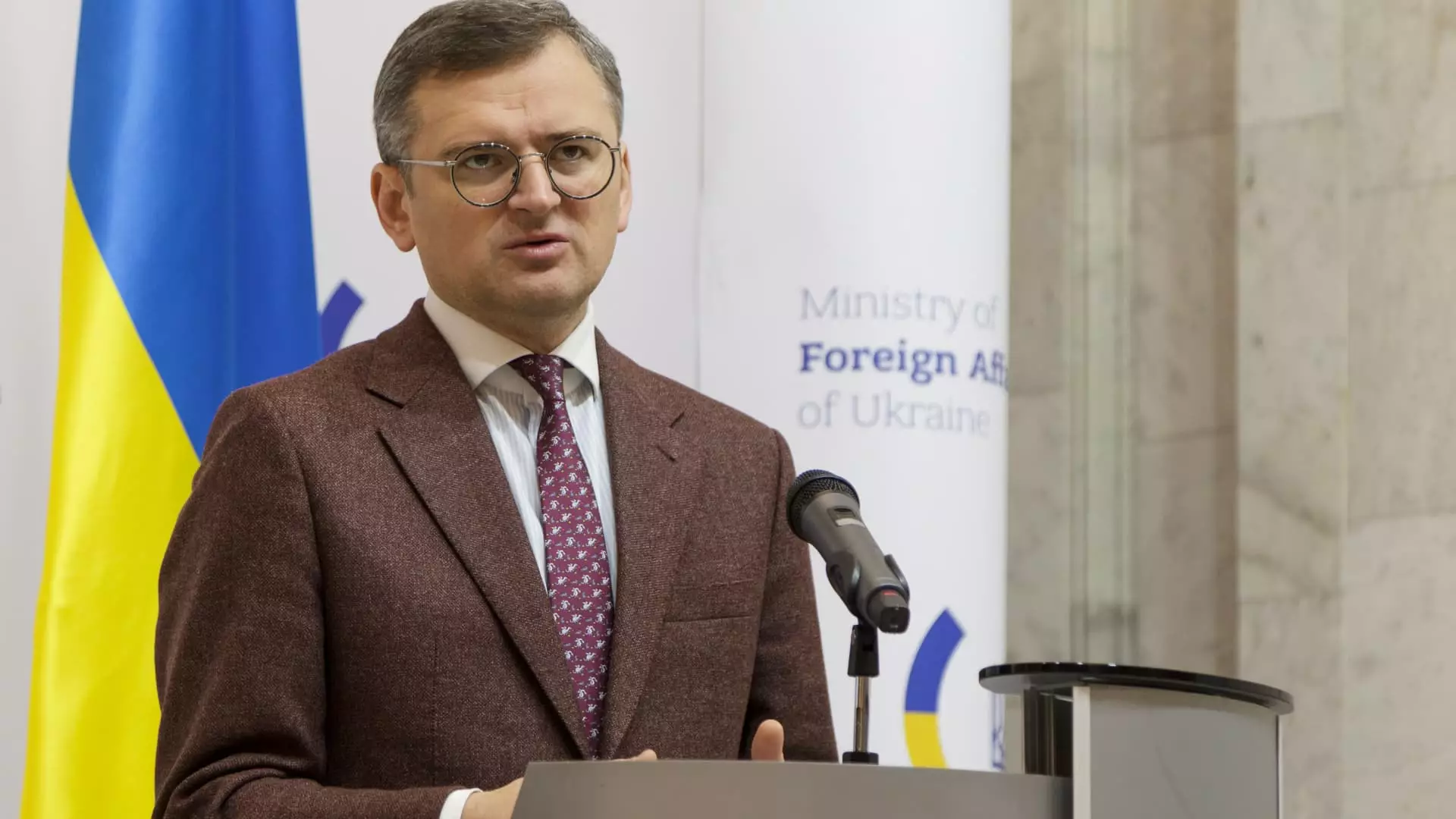The ongoing conflict between Ukraine and Russia has evolved into one of the defining geopolitical issues of our time. Former Ukrainian Foreign Minister Dmytro Kuleba recently made headlines with his stark warnings regarding the implications of a Ukrainian defeat in this conflict. Describing the potential repercussions for the European Union, Kuleba underscored the necessity of Ukraine’s triumph in its battle against Russian aggression, arguing that failure could bring war to the very streets of European cities.
Kuleba’s assertion that the stability of Europe hinges on Ukraine’s success reflects a chilling reality: the conflict is not solely a regional issue but a potential precursor to wider instability across the continent. His comments highlight the fragile nature of European security in the face of Russian expansionism. With the historical precedent of Russia’s incursions into neighboring territories, many analysts have drawn parallels to the Balkans’ tumultuous past. If Ukraine were to capitulate, there is a legitimate fear that Russia’s ambitions could extend toward similarly vulnerable European nations.
Kuleba articulated that while Russian President Vladimir Putin seemingly lacks the capacity to wage multiple wars simultaneously, his ability to concentrate resources on a singular conflict poses a grave risk to Europe. The implications of this are profound; should Ukraine fall, Europe might find itself next in line, facing the reality of an aggressor emboldened by apparent success in the region.
A critical element in the discourse surrounding Ukraine’s future is its desire for NATO membership. Kuleba emphasized that achieving this objective is imperative for preventing a reoccurrence of conflict. However, he also acknowledged the complexity of this aspiration within the context of NATO’s unanimous approval requirement for new members. His comments reveal a nuanced understanding of the geopolitical chess game at play, wherein membership could serve as both a defensive measure for Ukraine and a deterrent against Russian advances.
Kuleba’s proposals suggest that while temporary patterns of ceasefire could result from halting these discussions, they would not serve as a lasting solution to the potential for renewed hostilities. The political dynamics surrounding NATO membership remain contentious, and Kuleba argues that serious negotiations could pave the way for a more secure future for Ukraine and Europe as a whole.
In another dimension of this complex situation is the role of the United States. With President-elect Donald Trump poised to return to the White House, Kuleba expressed uncertainty over the implications of this political shift. During a recent meeting with Ukrainian President Volodymyr Zelenskyy, Trump called for an immediate ceasefire, claiming he could resolve the conflict rapidly if elected. This rhetoric emphasizes the critical balance of power in the region and the significance of U.S. involvement in maintaining—or shifting—the trajectory of the conflict.
Yet, Kuleba reinforced the notion that the pathway to peace must involve realistic negotiations with Russia. He poignantly noted that the primary focus should not be on the wishes of Ukraine or Western leaders but rather on compelling Putin to engage in diplomatic dialogue. The desire for peace should not come at the expense of Ukrainian sovereignty or territorial integrity; these are fundamental principles that no Ukrainian leader, according to Kuleba, would compromise.
Amidst calls for peace, Kuleba highlighted the thin line between diplomacy and the risk of escalation. As Russia continues to intensify its military campaigns, including recent significant assaults on Ukraine’s energy infrastructure, Kuleba argues that Ukraine cannot afford to remain passive. His perspective underscores an urgent necessity to respond to aggression not just in kind but also in strategy, preparing for further conflicts if diplomatic solutions fail.
This sentiment captures the tension inherent in a defensive strategy that must also be adaptable in the face of relentless pressures. As Kuleba aptly stated, when confronting an adversary willing to surge more forces into battle, it is only logical for Ukraine to adopt a responsive posture, pushing back to defend its sovereignty.
The fight for Ukraine is not merely a regional struggle but a crucial moment for the broader European landscape. Kuleba’s arguments invoke a sense of urgency—victory for Ukraine may well be the key to preserving peace and stability throughout Europe. The stakes have never been higher, and the unfolding narrative will undoubtedly shape international relations for years to come.


Leave a Reply